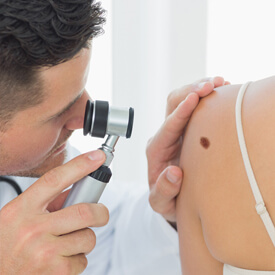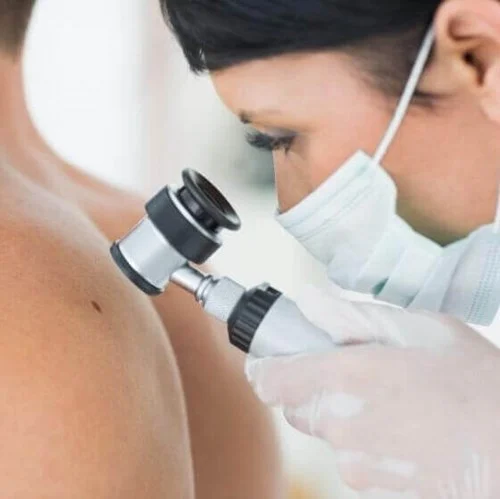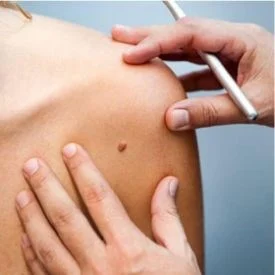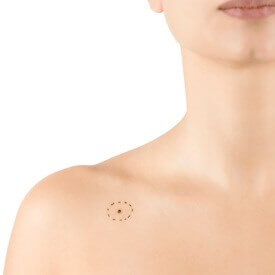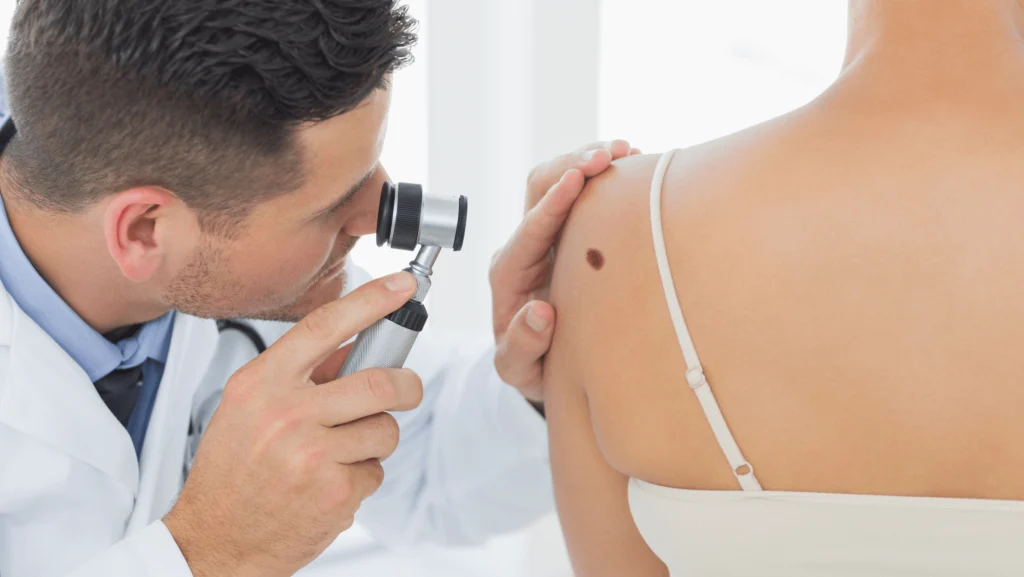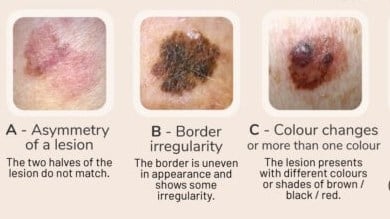What can be done to reduce the risk of developing more skin cancer if they have already had basal or squamous cell skin cancer?
Squamous Cell Carcinoma in Fort Washington, PA
ABOUT SCC
Board-certified dermatologist and Fellowship-trained skin cancer surgeon Dr. Aradhna Saxena provides specialized Mohs Micrographic Surgery treatments for squamous cell carcinoma (SCC). The upper layers of your skin are formed by squamous cells, and when these cells become malignant, usually due to sun damage, they can develop into squamous cell carcinomas (SCC). SCC can grow outward as well as invade deeper into the skin. If left untreated, a small percentage of SCC will metastasize – spread to other parts of the body.
SCC is quite common in those who do not take proper sun-exposure precautions. It is easily preventable by limiting exposure to UV rays, using sunscreen, and wearing protective clothing. If you have a suspicious or concerning area on your skin that is itching, flaking, or bleeds too “easily,” please schedule a skin cancer screening at a Dermatology and Skin Cancer Institute location in Fort Washington, PA or Lansdale, PA right away.
CAUSES
Typically, SCC is caused by overexposure to the sun or ultraviolet (UV) rays from tanning beds. However, long-term exposure to certain toxic chemicals, such as arsenic, can also lead to squamous cell carcinoma. Spending too much time out in the sun without using sunscreen and other forms of sun protection, such as clothing and hats, can also elevate your risk for skin cancer. The most common cause of SCC is tanning outdoors or in a tanning bed. Unfortunately, “safe” tans are a myth, and strict precautions are necessary to protect your skin while enjoying yourself outdoors.
SYMPTOMS
SCCs can appear anywhere on the body but are most common on the face, lips, ears, scalp, arms, or legs. They can look like rough, scaly, or red nodules, large, rough, dark brown or black patches, or like open sores that won’t heal. They sometimes start off as actinic keratosis (AKs), which are smaller, crusty, brown or flesh-colored patches of skin. The most frequently seen symptoms are itching, pain, and bleeding. Please contact the Dermatology and Skin Cancer Institute in Fort Washington, PA or Lansdale, PA right away if you have any lesions you suspect could be squamous cell carcinoma.
TREATMENTS
At the Dermatology and Skin Cancer Institute, Dr. Saxena offers multiple treatment options for SCCs, such as:
- Surgical excision: This common treatment surgically removes skin cancer lesions with a scalpel. Dr. Saxena will create horizontal cuts to excise the lesion and its adjacent tissue.
- Electrodesiccation and curettage (ED&C): This nonsurgical procedure involves heating and scraping small cancerous lesions for removal. Moles and other noncancerous lesions can also be treated with ED&C.
- Mohs surgery: This is a precise surgery done in stages to ensure that all of the cancerous tissue is removed while affecting as little healthy tissue as possible. The growth is removed and tested, and then the tissue inside the removal wound is shaved in any spots that correlate with cancerous cells on the outside of the removed tissue.
- Topical chemotherapy: This treatment comes in the form of medicated creams that are applied to the lesions in the privacy of your own home. The specific creams and dosages will differ from patient to patient.
GET TREATED TODAY
Experienced dermatologist and skin cancer specialist Dr. Aradhna Saxena has treated countless Philadelphia-area men and women for squamous cell carcinoma. It’s very important to have SCCs treated as soon as they are diagnosed, because they can very easily spread to other parts of the body. The Dermatology and Skin Cancer Institute also offers many treatment options to remove other cancerous skin lesions. Contact one of our offices in Fort Washington, Lansdale, or Willow Grove, PA to schedule a skin cancer screening with Dr. Saxena today.


